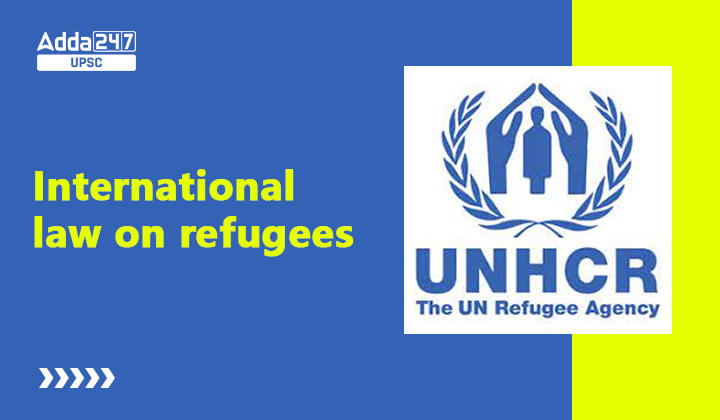Table of Contents
UN chief Antonio Guterres on Tuesday asserted that no party to an armed conflict is above international humanitarian law, as he expressed deep alarm over the “relentless bombardment” of the Hamas-ruled Gaza Strip by Israeli forces and appealed to all to “pull back from the brink” before the violence escalated even further.
International law on refugees
The recent conflict in Gaza has once again brought the international community’s attention to the enduring tensions in the Middle East. UN Chief Antonio Guterres has made a bold statement, emphasizing the importance of upholding international humanitarian law amid the relentless bombardment of the Hamas-ruled Gaza Strip by Israeli forces. In this article, we will delve into the key points of this story, analyzing the implications and the broader context of this conflict. We will also explore the role of international institutions and India’s assistance to Palestinian refugees.
UN Chief’s Concerns
UN Secretary-General Antonio Guterres expressed deep alarm over the ongoing conflict in Gaza and the apparent violations of international humanitarian law. His message was clear and unambiguous: “No party to an armed conflict is above international humanitarian law.” This statement underlines the universal importance of upholding the principles of humanitarian law, regardless of the parties involved.
The Israeli Perspective
In response to Guterres’ remarks, Israel has called for his resignation. Understanding Israel’s position in this conflict is essential for a comprehensive analysis. Israel has long maintained that it has the right to defend itself against attacks from Hamas, which it considers a terrorist organization. The Israeli government argues that its actions are necessary to protect its citizens.
The Palestinian context
While addressing violations of international law is crucial, it’s also important to consider the context in which these events are occurring. The Palestinian people have faced over five decades of occupation, which has contributed to the grievances and tensions in the region. The situation is complex, with both historical and political elements at play.
How does the United Nations see Hamas?
The United Nations has not officially designated Hamas as a terrorist organization. Instead, it distinguishes between the political and military wings of Hamas. The military wing of Hamas, known as the Izz al-Din al-Qassam Brigades, is generally regarded as a terrorist organization by many countries, including Israel and the United States. The political wing of Hamas, on the other hand, is not universally designated as a terrorist organization, and some nations and entities engage in diplomatic relations with it. However, the UN has expressed concerns about the actions of both wings of Hamas, particularly its rocket attacks targeting Israeli civilians, and has called for a peaceful resolution to the Israeli-Palestinian conflict.
Hamas and International Law
Hamas, the ruling authority in Gaza, is recognized as a terrorist organization by several countries, including Israel and the United States. The United Nations itself has expressed concerns about Hamas’s actions, particularly its rocket attacks targeting Israeli civilians. The role and status of Hamas in this conflict are central to understanding the dynamics at play.
The Plight of Palestinian Refugees
Displacement has been a recurring theme in Palestinian history, dating back to the 1948 Arab-Israeli War. This conflict has resulted in a significant number of Palestinian refugees. To address their needs, the United Nations established the United Nations Relief and Works Agency (UNRWA) in 1949. UNRWA plays a crucial role in providing healthcare and education to Palestinian refugees.
International Law on Refugees
The international community, through the 1951 Convention Relating to the Status of Refugees, established the legal framework for the protection and assistance of refugees. This convention sets out the rights of refugees and the responsibilities of states. While Palestine is not a signatory to this convention, its situation is addressed through UNRWA and other international agreements.
What is the 1951 international refugee law?
The 1951 Convention Relating to the Status of Refugees, commonly referred to as the “1951 Refugee Convention,” is an international treaty that sets out the legal framework for the protection and rights of refugees. It was adopted on July 28, 1951, and entered into force on April 22, 1954. The 1951 Refugee Convention was originally drafted in response to the aftermath of World War II and the large number of displaced persons and refugees at that time.
India’s Assistance to Palestinian Refugees: India has historically supported the Palestinian cause. India’s assistance to Palestinian refugees is primarily channeled through its contributions to UNRWA. This support is a testament to India’s commitment to humanitarian efforts and its long-standing solidarity with the Palestinian people.
Conclusion
The recent escalation of violence in Gaza and UN Chief Antonio Guterres’ strong stance on upholding international humanitarian law highlight the urgency of addressing the Israeli-Palestinian conflict. While the situation is undoubtedly complex, a commitment to the principles of international law and the well-being of Palestinian refugees is vital. The international community, including India, must continue to work toward a peaceful resolution that respects the rights and dignity of all parties involved.



 TSPSC Group 1 Question Paper 2024, Downl...
TSPSC Group 1 Question Paper 2024, Downl...
 TSPSC Group 1 Answer key 2024 Out, Downl...
TSPSC Group 1 Answer key 2024 Out, Downl...
 Cabinet Ministers of India 2024, New Cab...
Cabinet Ministers of India 2024, New Cab...







